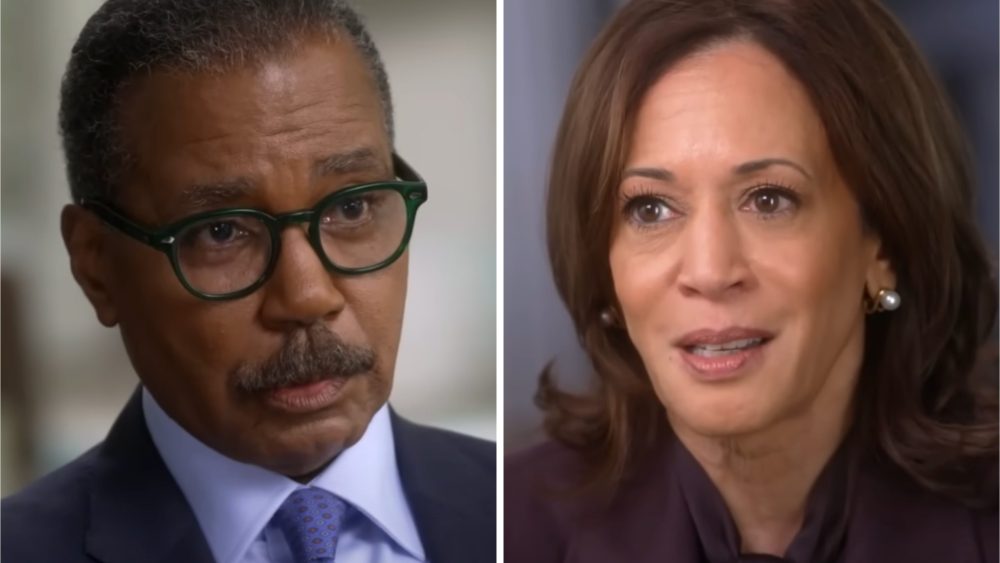Kamala Harris Responds to ’60 Minutes’ Edit Controversy, Distances From CBS
The Kamala Harris campaign has distanced itself from the controversy surrounding her “60 Minutes” interview after Donald Trump demanded the network apologize for airing two different versions of the Vice President’s response to a question.
In a teaser clip released online, which also aired on “Face the Nation” on Oct. 6, Harris provided a lengthy response to “60 Minutes” correspondent Bill Whitaker’s question about whether the U.S. lacks influence over Israeli Prime Minister Benjamin Netanyahu. In the final interview that aired Oct. 7, Harris’ answer was edited differently.
The two clips have circulated on social media side-by-side as the network faces calls to release the full interview transcript. Trump wrote in a Truth Social post on Wednesday that CBS “must be investigated,” accusing the network of making Harris appear “more Presidential” in the edit. Both versions of Harris’ response are transcribed below.
In a statement addressing the controversy surrounding the edited response, an aide for the Harris campaign told Variety, “We do not control CBS’s production decisions and refer questions to CBS.”
CBS did not immediately respond to Variety‘s request for comment.
During its Monday night broadcast, CBS News said Trump backed out of his “60 Minutes” interview, with correspondent Scott Pelley saying that the campaign “complained that we would fact-check the interview. We fact-check every story.” Trump spokesman Steven Cheung said “there was nothing scheduled or agreed upon.” This marks the first general election year since 1968 in which both presidential candidates did not sit down with “60 Minutes” in October.
Here is Harris’ longer response, which aired in a teaser on Oct. 6:
Whitaker: Does the U.S. have no sway over Prime Minister Netanyahu?
Harris: The aid that we have given Israel allowed Israel to defend itself against 200 ballistic missiles that were just meant to attack the Israelis and the people of Israel. And when we think about the threat that Hamas, Hezbollah presents, Iran, I think that it is without any question our imperative to do what we can to allow Israel to defend itself against those kinds of attacks.
Now the work that we do diplomatically with the leadership of Israel is an ongoing pursuit around making clear our principles, which include the need for humanitarian aid, the need for this war to end, the need for a deal to be done which would release the hostages and create a ceasefire. And we’re not going to stop in terms of putting that pressure on Israel and in the region, including Arab leaders.
Whitaker: But it seems that Prime Minister Netanyahu is not listening.
Harris: Well, Bill, the work that we have done has resulted in a number of movements in that region by Israel that were very much prompted by, or a result of, many things, including our advocacy for what needs to happen in the region.
Here is Harris’ shorter response, which aired during “60 Minutes” on Oct. 7 and appears on CBS News’ online transcript:
Whitaker: Does the U.S. have no sway over Prime Minister Netanyahu?
Harris: The work that we do diplomatically with the leadership of Israel is an ongoing pursuit around making clear our principles.
Whitaker: But it seems that Prime Minister Netanyahu is not listening.
Harris: We are not gonna stop pursuing what is necessary for the United States to be clear about where we stand on the need for this war to end.


